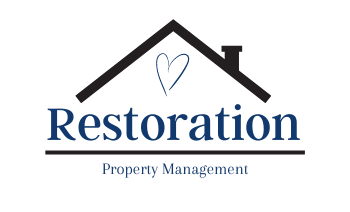
By Chad Harvell
•
March 6, 2023
Upholding the Standards: Fulfilling Your Fiduciary Responsibilities in a HOA Serving as a board member in a community association is a serious responsibility that comes with significant fiduciary duties. A fiduciary duty is a legal obligation to act in the best interest of others, in this case, the residents of your neighborhood. At Restoration Property Management , we work directly with our Board Members each and every day and assist them in running better and more efficient Associations. We are local community management experts who help guide the Board of Directors when in making the best decisions that are for the betterment of the Homeowner’s Association. One of our goals as your community manager is to help guide the Board into making decisions that are in line with their fiduciary responsibilities. When it comes to a board member's fiduciary responsibility , here are the key components. Duty of Care : Board members must exercise reasonable care and diligence in fulfilling their responsibilities. This means staying informed about the community’s financial, legal, and operational issues, and making informed decisions. Duty of Loyalty: Board members must act in the best interests of the community, not for personal gain. This means avoiding conflicts of interest and making decisions that are in the best interests of the community, not just individual members. Duty of Obedience: Board members must obey the laws and regulations that govern the community, as well as the community’s governing documents. This includes following the community’s covenants, conditions, and restrictions (CC&Rs) and making decisions that are consistent with them. Duty of Accounting: Board members must keep accurate and transparent financial records, and ensure that all funds are handled responsibly. They must also provide regular financial reports to the community. Duty of Good Faith: Board members must act in good faith, meaning that they must make decisions that are reasonable without malice. They must also act in a manner that is fair and impartial to all residents to the community. Serving as a board member of a homeowner’s association in Louisiana requires a significant amount of responsibility and dedication. Board members must fulfill their fiduciary duties by exercising reasonable care and diligence, acting in the best interests of the community, obeying the law, keeping accurate financial records, and acting in good faith. By upholding these regulations, board members can ensure that the community is well-managed and the interests of all residents are protected. Our experienced management firm can provide your Board with the guidance on how to be effective, efficient, and “above the board”. Reach out to us today and let us show you how! Community Management is WHAT WE DO!

By Chad Harvell
•
May 5, 2021
Many of us are living in a community governed by an association. You might live in a town home or single-family home that is part of a community governed by a homeowner’s association, or in a condominium that is managed by a condo association. The numbers will continue to increase as more than 75% of new housing developments will be governed by a community association. The success of a community association depends on the effectiveness of its governing board. According to a 2020 survey conducted by the Foundation for Community Association Research , 89% of homeowners and condominium residents believe that their community association board either “absolutely” or “for the most part” serves the best interests of the community. But what makes a community association board effective? In general, the best boards are those consisting of members who are educated, knowledgeable, and who will put the interests of the entire community ahead of any personal agenda. Just like any business or association, an effective community association is guided by a mission and a set of core values. Examples of community missions are “to protect property values,” or “to preserve and protect a quality living experience.” Once the mission is established, an effective board will also agree on a plan to achieve it. For example, a board may agree to perform a capital improvement reserve study every 5-7 years to identify the community’s needs and develop a plan to meet them. If you are considering serving on your community association board, the qualities you should possess in order to be effective include: • Familiarity with the association’s governing documents; • Having respect for the needs of the community residents and being open to new ideas and suggestions; • Ability to be consistent and dependable when making decisions for the community; • Ability to communicate regularly with residents and be transparent about the work of the board; • Willingness to seek the advice of an experienced property manager and other professionals; • Ability to abstain from decisions that are real or perceived conflicts of interest; • Willingness to prepare for board meetings and complete any assigned projects; • Committed to always putting the needs of the community first. For more helpful tips, the Community Association Institute is a great resource for homeowners & board members, offering access to education and a wealth of resources to help board members provide effective governance. An experienced property management firm can also provide a community association board with guidance on how to be effective, how to run productive board meetings, and how to maintain the quality of the community. So, when you’re ready for a different management approach and to have your community restored, let us know and reach out! Community Management is WHAT WE DO!

By Chad Harvell
•
March 30, 2021
Some volunteers who have served on a homeowner’s association (HOA) board have realized that much of what works for them in their day job doesn’t work as well in the context of board governance. That’s because, in an association, no single person is in charge. Decisions are made by the consensus of board members, so the chain of command is horizontal and less hierarchical. The best board members understand this very different paradigm. They also prepare for the role and follow the steps below. Embrace group decision-making The individual director typically has no power. Once directors embrace the framework of the board as decision-maker, they understand that they cannot make individual promises. This restraint can be very freeing since no individual is responsible for the association and its actions. Know Your Limitations A director’s role is in the title; he or she is a person who gives direction. Directors are not required or expected to act. The board directs its manager, employees, and service providers to act through association policy and individual decisions. A director has got to know his or her limitations. They accept that they do not know everything; they rely upon managers, consultants, and committees. Such directors handle board disagreements much better by accepting the possibility that another sees or knows something that they do not. Prepare for Meetings The dynamic between group decision-making and relying on experts should be on full display during association meetings. The most productive and efficient meetings are the result of committed and prepared volunteers, normally assisted by a great manager . To help bring about the best board meetings as a director: · Read the agenda packet. · Stay on topic. · Talk to the board, not the audience. · Ask the manager for input on most motions. · Encourage open forums as an important part of meetings and pay attention. · Don’t comment on every motion. · Respect your board colleagues. Handle Disputes without Hostility During your board service, there will occasionally be violations of the governing documents or other un-neighborly conduct. Try to work things out. Gentle escalation is almost always preferable to “going legal” right out of the gate. Don’t assume the violating homeowners are disrespecting the board. They might not understand their rights and responsibilities. Give them a chance to do the right thing. In addition, don’t be too quick to take sides in a dispute between residents, unless there is independent corroboration of the problem. Encourage residents to work things out as neighbors. Recruit Replacements Finally, begin identifying and preparing your replacement on the board early on. Volunteer service should not be a life sentence trying to find a replacement when you’re wanting to resign is hard. Committees can and should be formed to identify those who not only have the interest but will demonstrate commitment to the association and proper attitudes of service and governance. More often than not, volunteering for your HOA Board is a thankless job and we know this. When you’re ready for a different management approach and to have your community RESTORED, let us know and reach out! Community Management is WHAT WE DO!

By Raymond Dickey - The Huffington Post
•
March 8, 2021
We ran across this article and thought that it would be a good addition to our blog. Being a Board Member is difficult, no salary and lots of headaches. Do your community a favor and thank your Board for their work. I have volunteered with many organizations. I’ve been a soccer and baseball coach, scout leader, a Lions Club president and even an EMT with my town’s first aid squad. I’ve helped many different kinds of people, in many different kinds of situations. In these positions, the vast majority of people I helped appreciated it. I assume thousands, actually hundreds of thousands of other volunteers have had similar experiences. But there is one group of unpaid volunteers, numbering in the millions who are not only unappreciated, but many times hated by those they help. They routinely read complicated legal documents, spend hours meeting among themselves and with their groups’ members and have the pressure of knowing their decisions will have great impact. They are volunteer homeowner association (HOA) board members. It could be argued that they are the most despised volunteers in America. Even the most calm, polite and unassuming people can turn into mommy grizzly bears when you get between them and either their money, children or, heaven forbid, both. One day, for example, your neighbor is exchanging pleasantries with you at the clubhouse. She is a lovely woman. But you see her the next night at your community’s HOA board meeting, and she is ready to burn an effigy of you because you informed her she cannot paint her house red with white polka dots. I’ve never been an HOA volunteer, but I’m a publisher in the HOA industry. I’ve heard it all. Most HOA board members are not power-hungry dictators. Many took the job because no one else did. Board members have to deal with everything from landscaping to “slip and fall” lawsuits. On top of that they have the responsibility to tell their neighbors things like how high their grass or fence can be. When I coached sports, people said “Thanks for teaching my kid how to throw.” In Boy Scouts I would hear “Thanks for setting up the camping trip.” At the Lions Club I’d get “Thanks for the fundraising,” and the First Aid Squad “Thanks for the ride to the hospital.” People understood they were receiving help. But HOAs are different because the average resident doesn’t really understand how the association board members protect their property values. They don’t see that efforts are being made to collect dues from delinquent homeowners. This is money that everyone else would need to make up the difference on if uncollected. They don’t understand that there are timetables that need to be organized for building money in reserves to maintain their common elements such as pools, parking lots, signage, trees and more. The beneficiaries of these volunteer efforts either take them for granted, or they assume since they pay dues, they are entitled to live unaware of what goes on to maintain their properties. After all, the community was sold to them as “maintenance-free living.” They don’t understand that it’s maintenance free because volunteers are overseeing the management of the community. The aspect of management and oversight are completely overlooked. The best analogy I can make about this misunderstanding is to use government as an example. We all pay taxes, however we know that this money can be used in a variety of ways depending on who is in charge. Just because we pay taxes, we don’t assume we can all live like children in their parents’ houses – completely free of responsibility. If the schools are falling apart or people are speeding down local roads, we expect local government to take action – make decisions and plan so “our town” doesn’t become Armageddon. It’s basically the same with these communities. The HOA board can hire a management company, but it’s up to residents, those who actually have a stake in the real estate and the heart of the neighborhood, to steer management in the right direction. Here’s the main reason why being an HOA board member could be the worst volunteer job in America. When I was a soccer coach of eight-year-olds, I had to deal with a player’s dad who was insane. He never volunteered. He just showed up every now and then and would berate the team and myself from the sidelines like a crazy person. I got though it for two reasons. First, everyone else knew he was nuts. And second, perhaps most importantly, I could go home and be done with him after the game. Unfortunately for HOA board members, they need to live side-by-side with their antagonists. The soccer dad could only scream from the sidelines. He was not entitled to speak his peace or “take the floor” at meetings on a monthly basis. I didn’t have to see him every time I pulled into my driveway. He couldn’t approach me while I was walking my dog. There’s more going on at your HOA then people letting their dogs poop all over, or residents who can’t park their cars within the lines. For most people the investment in their home is the most critical investment in their lives. Yet, many people spend more time investigating which model of car to purchase, compared to what they are getting into with a HOA. That is a big mistake, because whether you are a HOA board fan, or antagonist, or something in between, that lack of knowledge can hurt. HOAs do run into major financial issues, some even go bankrupt. What is your home value going to be if your pool has algae in it, or the clubhouse is falling apart? My suggestion is to get to know your board members outside of the “public meeting” sessions. These meetings are important to attend but many times attract the more vocal residents, whose hobby in life are to attend these meetings and “yell from the sidelines” like my soccer friend. This way you can simply ask “how is the HOA doing” in a cordial environment, and hopefully get answers to your questions, and stay up to date on how your largest investment is doing.

By Chad Harvell
•
January 18, 2021
What does the ACC process entail, and how can the board ensure project requests are handled efficiently and fairly? Here, we’re going to cover the basic architectural review process, as well as some of our tips for working with home improvement requests and if you’re a homeowner, what you can do to get yours approved the first time!

By Chad Harvell
•
December 10, 2020
Switching Your HOA Management Company Every year, homeowners associations across the country vote on issues regarding the upcoming year. At the end of each year is also the time when many HOA management contracts expire and are up for renewal. If your HOA Management contract is up for renewal, this is an excellent time to stop and assess your management situation. Are you getting the service you need or expect from your current HOA management company? We receive emails and phone calls often from board members who are frustrated with their current management company and all too often it’s the same frustrations. They’ve been with an HOA management company for years and each year they find the service level has deteriorated and they’re to a point where they are ready to make a change. Today, the vast majority of community associations do not have a professional HOA management company. If your association is self-managed, this is a great opportunity to look at what you stand to gain by retaining the services of a trusted community association management company. Qualities to Look for When Switching HOA Management Companies Knowledge and experience are perhaps one of the greatest advantages of hiring a professional HOA management company. Making smart business decisions for your association is key to successful operations and property managers can help guide the board in making those decisions. Not every board has experienced board members that knows what it takes to properly run an association and that’s where your property manager comes in. Accounting, arguably the most boring class in college. With an HOA Management company, they’re handling all of the accounting for you. Budgets, collecting dues, and paying the bills are all part of the management package. Is your current property manager successfully collecting associations dues? They should be, it’s their job. Policies should be in place and the board notified timely regarding late assessments. Liens and foreclosures often require working with banks and attorneys – another job for the management. With Restoration Property Management you’re getting an experienced team of accountants who love their field and specialize in association accounting. If you’re a self-managed HOA the all of that work is on you. Would you know where to start when it comes to putting a lien on your neighbor’s house? Would you want to? Did you document all of the necessary steps taken to collect the late assessments? If not, you may want to consider a property manager. Signs It Might Be Time to Change Your HOA Management The most common issues that HOA board members encounter when dealing with sub-par HOA management companies are poor communication, inconsistent execution of contractual obligations, lack of timely information, and failure to complete projects. Poor communication is the quickest way to weaken the relationship between an HOA and their management company. Failure to return phone calls or emails timely is one of the top complaints from HOAs. It shouldn’t take several days to get have your phone call or email answered. It’s frustrating as a board member to not have your calls returned but when homeowners and vendors are having the same experience, that’s when your job becomes harder. Another common complaint is the inconsistency in which covenant compliance inspections are performed. Violations being sent to the wrong homeowner or not handling compliance as directed by the board is simply laziness on the community manager. Accurate and timely information is the key to any successful business. Not being able to access financial reports on demand, incomplete financial packets, and failure to receive requested reports are several grievances of many board members. Another part of your community managers job is to complete projects and hold vendors accountable. If your community manager is continually putting off projects, failing to complete requests for quotations, or not holding the vendors accountable to their contracts it can leave the board feeling stuck with few options available. Restoration Property Management knows that when it comes to the management of a homeowner’s association, communication is key. We pride ourselves on keeping an open line of communication with its clients. You’ll never wait days or weeks for a return call from us. We’re available for you when you need us most, providing service when it matters most. What We Offer At RPM, we are dedicated to attaining the highest professional level of property management services in the industry for our clients. We’re committed to our core values; honesty, integrity, & responsibility. Our word is our bond and honesty & excellence mark our actions at all times. We give our best in everything we do and we earn our fees by exceeding the expectations of our clients every day. No HOA should pay for an incompetent and unresponsive management company. If you’re experiencing some of the frustrations described above, we invite you to reach out to learn what Restoration Property Management can offer for your association. From the active board who only needs accounting and administrative support to those that would rather a hands-off approach, we will provide the level of service you desire.

